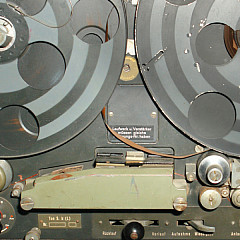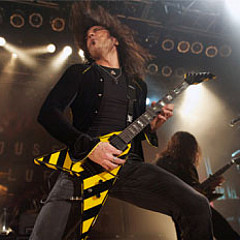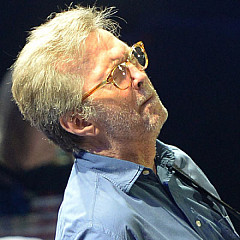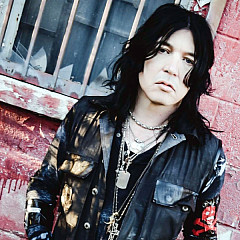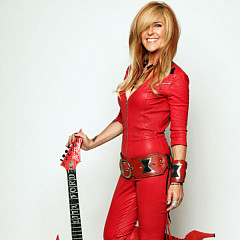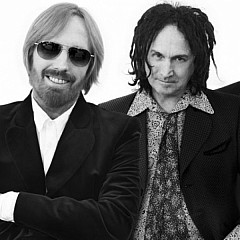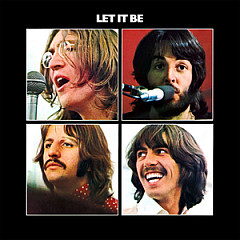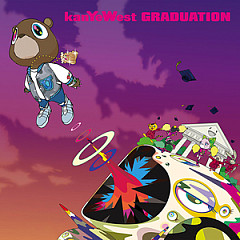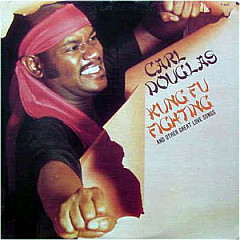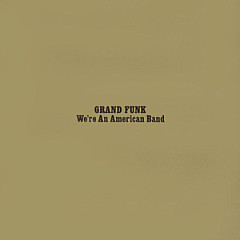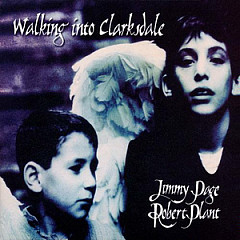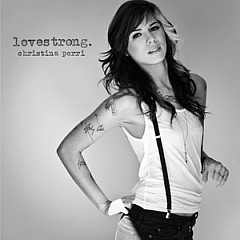
Ziman is one of the more creative cats we've come across. Her sounds are organic - voice, guitar, piano, strings - but they take unexpected turns and unlock little boxes of musical delight along the way. Hear for yourself: The show opens with a song that I think is one of the best I have heard in a long time, as I am a sucker for harmonies. Then we sprinkle in a couple more that she recorded for us throughout the episode. The transcript is below.
"Sha-la-la"
That beautiful doo-wop bassline is my friend Adam Minkoff, who is the upright bass player for a lot of this album. He was my main collaborator because this was the first album that I produced myself, and I played almost all the instruments. He played a lot of upright bass and one day I said, "Do you know what this album really needs? It needs some '60s bassline."I wanted even more like a '70s Harry Nilsson backdrop. I wanted this to be an homage to "Me And My Arrow" by Harry Nilsson. I asked him to sing the bassline, and he came back with the most beautiful bassline I have ever heard. He is just a master singer as well. And then his girlfriend, Gabby S., did the girl-group "sha-la-la-la."
I'm so lucky that I got some other singers on this record because I think there's just too much of me all over the place. It sounded great, and it really added this life-affirming hope to this song because I felt like we needed it, not just for the song but for the album as a whole, because the album mostly deals with the different forms that loneliness takes, and the breakdown of communication during the pandemic.
I had this offshoot on a couple of songs about characters from my childhood, and this was a true story of a can collector who used to sing and wander the streets of Minetta Lane when I was a kid. She would walk around with her dog and she always sang, "day-o, day-o, daylight come and me wanna go home," and she had this cute little bulldog with her. Every time I would say hello, she was so kind to me.
I wanted to show the melancholy and the hardship of life but also against the backdrop of someone just owning where they are and saying, "Screw it, I love my dog and we are parading around this city." I really like the celebration of New York as well.
It's a rub of melancholy and hope that all of the songs on the album have because we're always fighting for more hope right now and constantly boomeranging between the two feelings. Sometimes there's a sweet spot at that rub, and I feel like I got that sweet spot on this one.
Wandering The City To Write Songs
The majority of my songs, I first write them as poems. They're always lyrics first, and then I take a walk around the city. I usually do this on a walk, or it used to be on a train (when the MTA was safer), and I would just start singing the lyrics. And then once I have the basic melody and lyrics to the song, the harmonies and the instruments can vary - sometimes it's guitar, sometimes I just sing backgrounds. If it feels like an a cappella number like this one, I'll just sing a bunch of background parts.
"Pop The Placebo"
I'd like to just say before I discuss this that this is the first interview where I'm not talking about the narrative of the album so much, and I'm just talking about instruments and production. Kudos to you, because that's great! I want to talk about music - I'm a musician, I love talking about music.So, this one has a little bit more of a cinematic flair. I have collaborated with this composer, Paul Brill, on about 30 documentary films over the last six or seven years, so I have a side of me that's always thinking of string arrangements and how something can just flesh out in a more moderate romanticized way. This song I initially did very live and immediate - like "Sha-la-la" - and then I realized that the story of the song felt like every verse is about a different character, and it really felt to me like a little movie in a song: little acts in a play.
I thought that I need to get my friend Katie [Jacoby] to play some strings on this, I need to get Adam to play some bass, my friend Joanna [Schubert] to sing some back-up vocals, and everyone just emailed stuff to me. I sent them arrangements and they emailed me everything, and at the end of the day, it's one of the only ones that doesn't sound like my house on this record. I think that "Sha-la-la" still sounds like it was made in my house. It feels like my living room. It feels live and raw and kind of minimal, and then "Pop The Placebo" is a bit over the top.
I wrote some arrangements and I had my very talented friends send stuff back and I just thought, "Oh gosh, I could do a whole album this way." This album for the most part was done alone, but the songs that I collaborated and had friends send in parts were just so fun and it was so easy - it's kind of a miracle.
The song "Pop The Placebo," a lot of it is about being overwhelmed by the wellness industry and all the ads that we're bombarded with on Instagram and Facebook and feeling like we're never good enough. Yet the silver lining of being online is that I had all my friends send me all these parts in a couple of hours. It's insane, without even being in the same room. That's cool!
Berklee With St. Vincent
I went to school for film scoring. I didn't end up getting my degree in that, although I ended up doing it.Patti Austin, who is a really talented jazz singer, was coming through the school looking for cheap background vocalists for this wonderful Ella Fitzgerald tribute, and my friend Esperanza Spalding, who is a bass player - she was in my first band, lucky enough - she was touring with Patti and she said, "You can get credit for touring, do you want to come with me? I know that you're writing and composing at your piano, but do you want to just sing on this thing?"
So I ended up going on tour with Patti and getting credit for that - best school ever!
The truth is, it would have been cool to really get the education that I went there for and learn some engineering skills early on instead of waiting until now to do it all myself, but I went into that field anyway, so it seems to have done its magic. People that go to Berklee always thank the school for the community and the people that they met, and I met the boys that are now Lucius. My band for about seven years for my first couple of albums was Danny and Pete [from Lucius] that I met at Berklee.
Lucius has two female singers - Jess and Holly - who also went to Berklee. I had a crazy class [2004]. My first show was with Annie Clark - St. Vincent - and I have these cute little flyers of baby Annie and baby me. And I was playing with Esperanza, who ended up having such an amazing jazz career. She wasn't even singing when she was in my band and she has one of the greatest voices I've ever heard. There are all sorts of people that passed through there but I think I had this very distilled group of brilliant people - basically geniuses - in my class. Yeah, it was a very inspiring time and I'm definitely grateful to the school for that connection.
I went there initially because I got a scholarship there. I wasn't sure if I was going to go into liberal arts or whatever, and I had just started writing tunes, so I signed up for this songwriting competition and I did OK. Then I ended up trying it out and I'm really grateful for that because it pushed me in the right direction.
"Together, Alone"
It's the cornerstone, the North Star. It's this song that really brings the whole album for me into focus.I started writing this album after about six months of writer's block. I remember starting this song in March because me along with the rest of the world were in shock [because of the pandemic]. I wasn't making much music and then there was this dip in the numbers in the summer - in July and August - and I just had this glimmer of hope and I was able to take a step back from everything and I started recording at the beginning of August. I finished and recorded "Together, Alone," "Birds And The Bees," and a couple of other ballads on the album. It was just this surge of inspiration and it was all about the different ways that we cope with this huge breakdown in communication and the different forms that loneliness takes.
You can be lonely within a relationship, you can be lonely surrounded by people on tour, and you can be lonely being on your phone or being online too much. It's a song about our addiction to our phones, but also the good, the bad, the ugly, the entertaining, the foolish - all this other stuff that comes along with that.
I made this video that I am so proud of - I don't think I've ever been so proud of a video. I think the song makes so much more sense along with this visual. It was shot in my phone, and it's like a day in the life of my phone. I can't wait to share it with you.
"Underwater"
Elizabeth talks specifically about the lyric in the chorus, "I'm not afraid of sleeping like I used to be."This is from my last album. I absolutely had difficulties sleeping along with every other artist that I ever met, and it's interesting that "Together, Alone" was based on a dream I had where I had phones for hands. So, I have these very weird, vivid dreams. I mean I'm watching Bosch now, so that detective show is giving me the weirdest dreams I've ever had in my life.
But really it was less about the fear of sleep and more about the fear of what my dreams would be. I am not afraid of sleeping like I used to be. When I started writing down dreams, it gave me more fodder for my songs because otherwise I wouldn't remember half of them, but it also gave me some peace and kind of quelled my fears a little bit through that process of writing them down every morning. I still try to do that, especially now, because dreams are getting weird this year.
Pandemic-Related Afflictions
I know so many people who have insomnia this year, and there are so many forms of depression and fear, but the worst part of it is that when you're going through it, when it's really bad, you really think no one else will understand and no one else has experienced it. When I've been really depressed in my life, sometimes I think it is so egomaniacal because I can't include the rest of the people that are feeling it, if it's really bad. I feel like I'm just on my lonely island and that's it. And that's so wrong, but it's so hard to get through to people that that's not necessarily the case because it's so painful.The things that move me and are interesting and that are worth writing about are things that I've connected to very deeply, whether it's someone else's story, whether it's a fictional story, or whether it's these universal emotions that we have around fear. This album wasn't supposed to be a concept record, it unconsciously happened that way because I was writing and recording in and of a time. But the side to me that is the most unique about everything that's happening is the mental-health aspect. How do we re-evaluate our relationships? Re-evaluate the way that we even think about ourselves and our identity? How are we going to change after this? What are things that are going to be better that maybe we've grown from this time? And what are these kinds of hidden baggage that maybe we're going to carry with us forward that we don't even know exist yet?
I know that's kind of scary even saying it. It sounds kind of scary to me. But it's real, and I think that was the stuff I wanted to touch on because whether it's on the surface or not, we're all just carrying so much right now.

What She Loves About Sincerely, E
I do appreciate that every song this time is really a specific story and it has a specific point. I think I'm more focused than usual, but I also love that it's a little bit more raw and has this unapologetic, flawed quality.The first song on the record, "Birds And The Bees," I kept all of the squeakiness from the pedal in the beginning of the song, like readjusting my seat. And the last song on the record I started twice, and I kept the false starts in. I wanted there to be a rawness, a kind of dirtiness to it, a roughness, and I think that comes across in a lot of these recordings.
Awaiting The Muse
Whenever I'm not writing I feel crazy. It sounds like an overstatement but it's true. But during this time when things are still in chaos even as there is hope around the corner, the amount that I am putting into the music-business side of releasing a record - putting up posts on social media, doing interviews, just getting videos together - I'm kind of tapped out creatively. I'm just using a different side of my creative brain - maybe a little more right-brain - but I'm expecting the muse, the music gods, to come visit me again on my shoulder sometime soon. It comes in waves."Birds And The Bees"
The reason why it's the intro to the album is because it was just this convergence of all these conversations I had had with my family, friends, a neighbor, a stranger in the deli, about how we were coping with this new reality, and it kind of reads as a diary entry. But it's very descriptive, like this is what's going on, and then like a PSA the chorus is like, Stay home! Wear your mask! So, I got it all in there. That's how it felt for me.April 14, 2021
Subscribe to the Songfacts podcast, part of the Pantheon Network.
More at elizabethandthecatapult.com.
Photos: Wendy Mark (1), Seth Caplan (2,3)
More Songfacts Podcast

